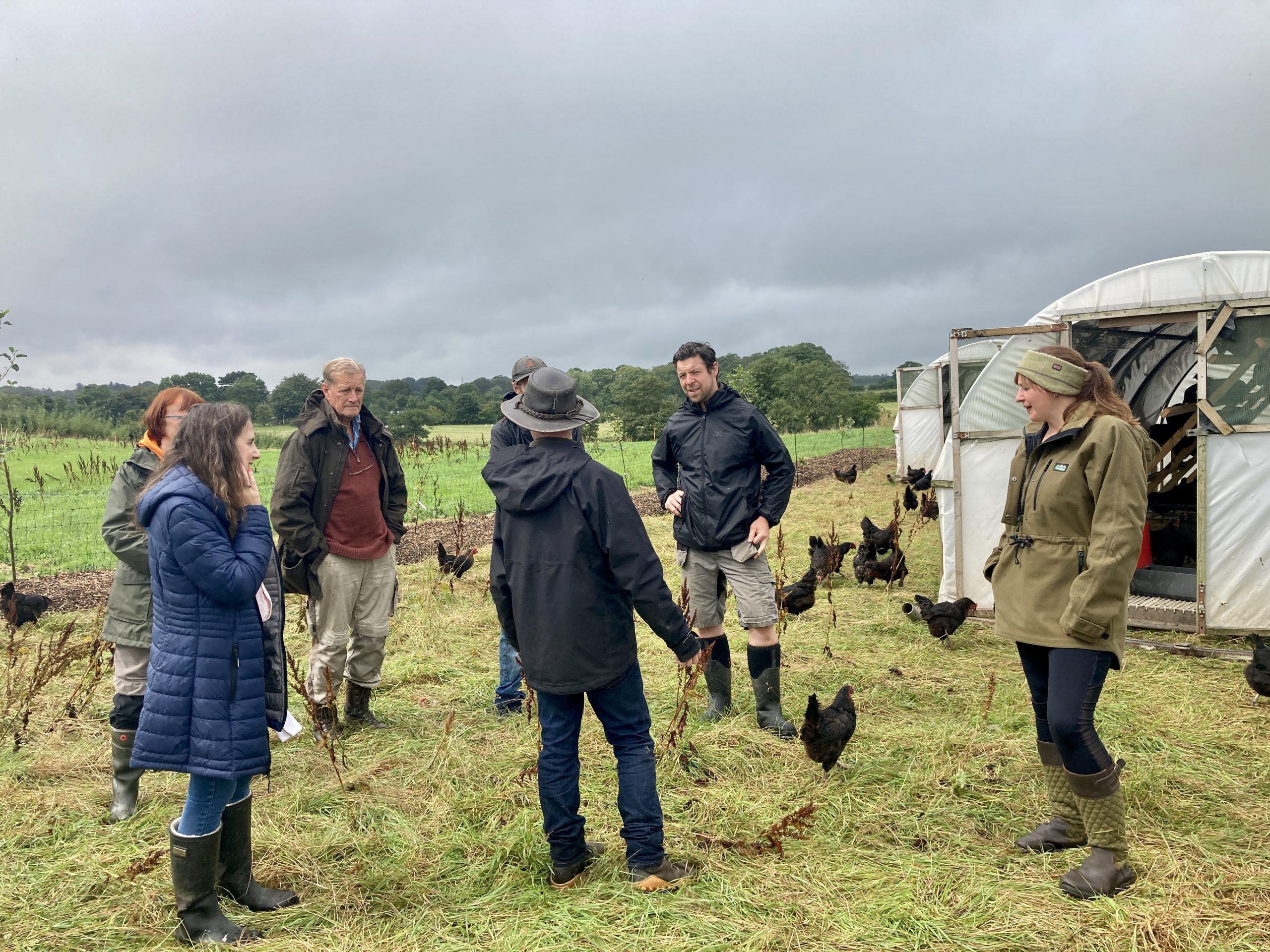A group of small-scale poultry producers in Scotland have come together to share knowledge about regenerative pastured poultry methods and explore solutions to the current feed crisis. The group is being facilitated by the Landworkers’ Alliance, and is part of the wider Knowledge Transfer Innovation Fund (KITF) programme being funded by Scottish Government.
Agroecology is only just creeping into the mainstream in farming and crofting practice in Scotland. There is a growing wider recognition of the potential of agroecology as a solution. There is also a demonstrated need for improved support and advice for farmers, crofters and growers looking to make a transition to nature-friendly farming.
“Agroecological approaches to farm management have significant potential to help Scotland tackle the twin crises of climate change and biodiversity decline whilst building resilience into our food production systems. Additionally, through improving ecosystem health and economic/crop diversification, agroecology can help ensure that agricultural production systems are resilient to future challenges.” – The potential for an agroecological approach in Scotland: Policy Brief
The Landworkers’ Alliance has come together with a unique partnership of organisations in Scotland to embed and support the transition to agroecology through a practical knowledge exchange programme funded by the Scottish Government’s Knowledge Transfer Innovation Fund (KTIF).
In the first phase of the project between January and March 2022 the partnership ran 15 different learning and knowledge-exchange events, with a mixture of on-farm visits and webinars. We also produced a series of short videos explaining why we want a just transition to agroecology in Scotland; you can watch them yma.
In the latest phase of the project we’ve established 6 groups (some with a geographical focus) to tackle different issues facing farmers and crofters, you can view the list of groups yma.
One of these groups is being facilitated by LWA’s Clem Sandison, bringing together small-scale poultry farmers who are hoping to tackle the huge challenge of sourcing organic UK-grown poultry feed. The aims of the group include sharing knowledge of pastured poultry practices, researching locally grown feed sources and exploring collective purchasing models.

In a letter to the Cabinet Minister Mairi Gougeon MSP, the group wrote:
“We are particularly concerned about how to move away from dependence on imported soya protein. Soya has an extremely high carbon footprint due to both deforestation and long-distance transport, it does not provide an ideal protein source for chickens, and supplementation with other substances such as B12 is also required. Crucially for consumers, soya in poultry feed can pass through to consumers who may be allergic or intolerant. In addition to the environmental benefits, the use of local protein sources instead of imported soya would shorten supply chains and improve the resilience of our businesses, while creating opportunities for innovative and small-scale feed producers.”
So far the Pastured Poultry Feed (PFF) group has had two meetings on-farm and a few online meetings, and have communicated and shared ideas in a dedicated WhatsApp group.
The project has also organised two webinars to date.
Webinar 1: Setting up a small-scale pastured poultry enterprise
This webinar shared the stories of three farmers on the west coast of Scotland who are running agroecological enterprises producing eggs and pastured chickens. Gilly Dixon-Spain from The Sailean Project on the Isle of Lismore, Jenny Macdonald from Woodside Arran Farm on the Isle of Arran, and Jill Russell from Ramstane Farm in East Ayrshire.
Webinar 2: Sustainable Poultry Feed: the potential of insect protein
In this webinar we were joined by animal welfare scientist and smallholder Lizzie Rowe, Helen Mytton-Mills from Agrigrub, and Richard Small from Inspro, to hear about the potential of farming Black Soldier Fly larvae as a natural protein source for chickens. BSF larvae can be raised entirely on waste veg and bi-products from organic agriculture creating a sustainable solution to food waste and a possible alternative to soya.
For more information on this project, please contact: clem.sandison@staging.landworkersalliance.org.uk
Photo credits: Clem Sandison

